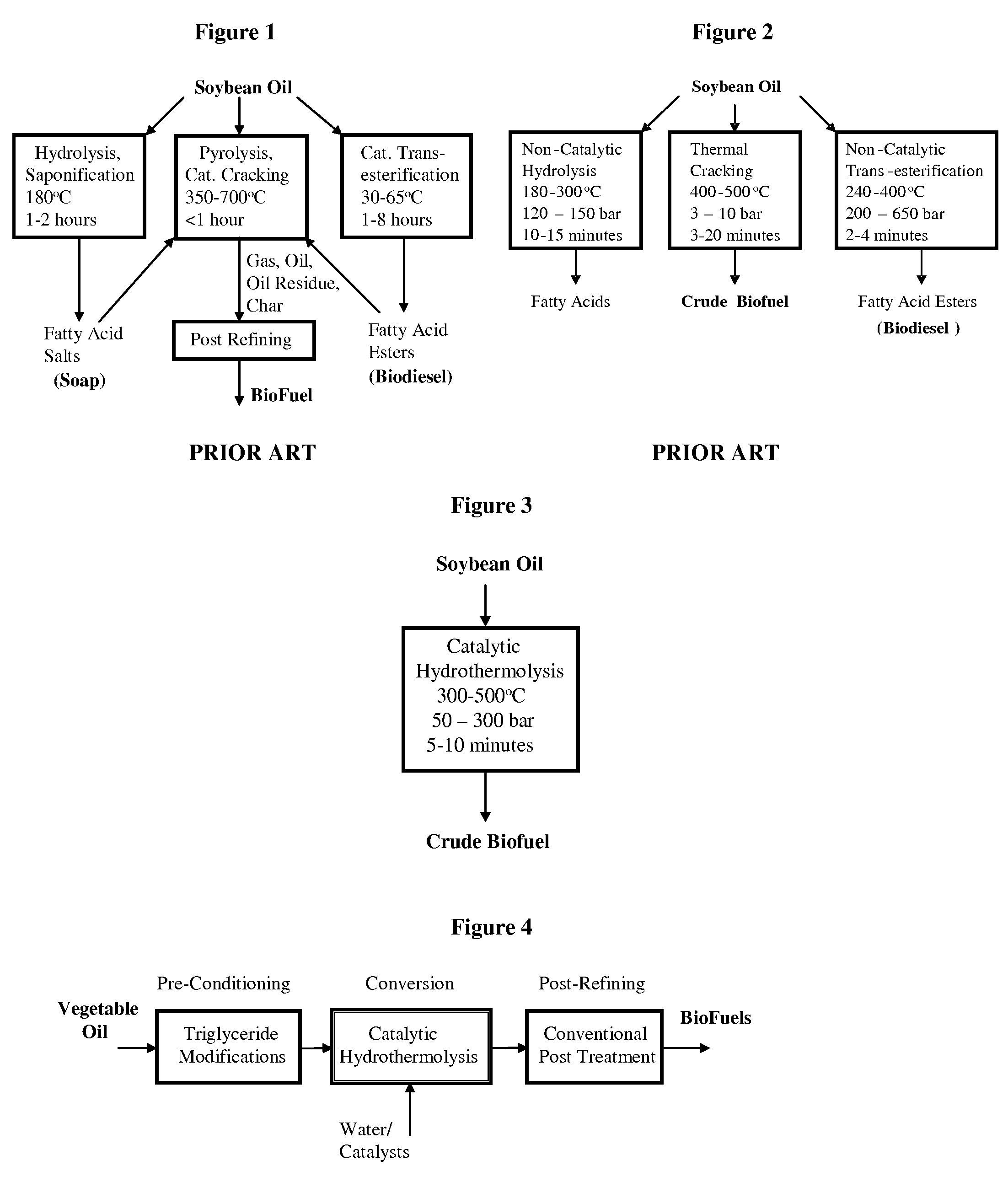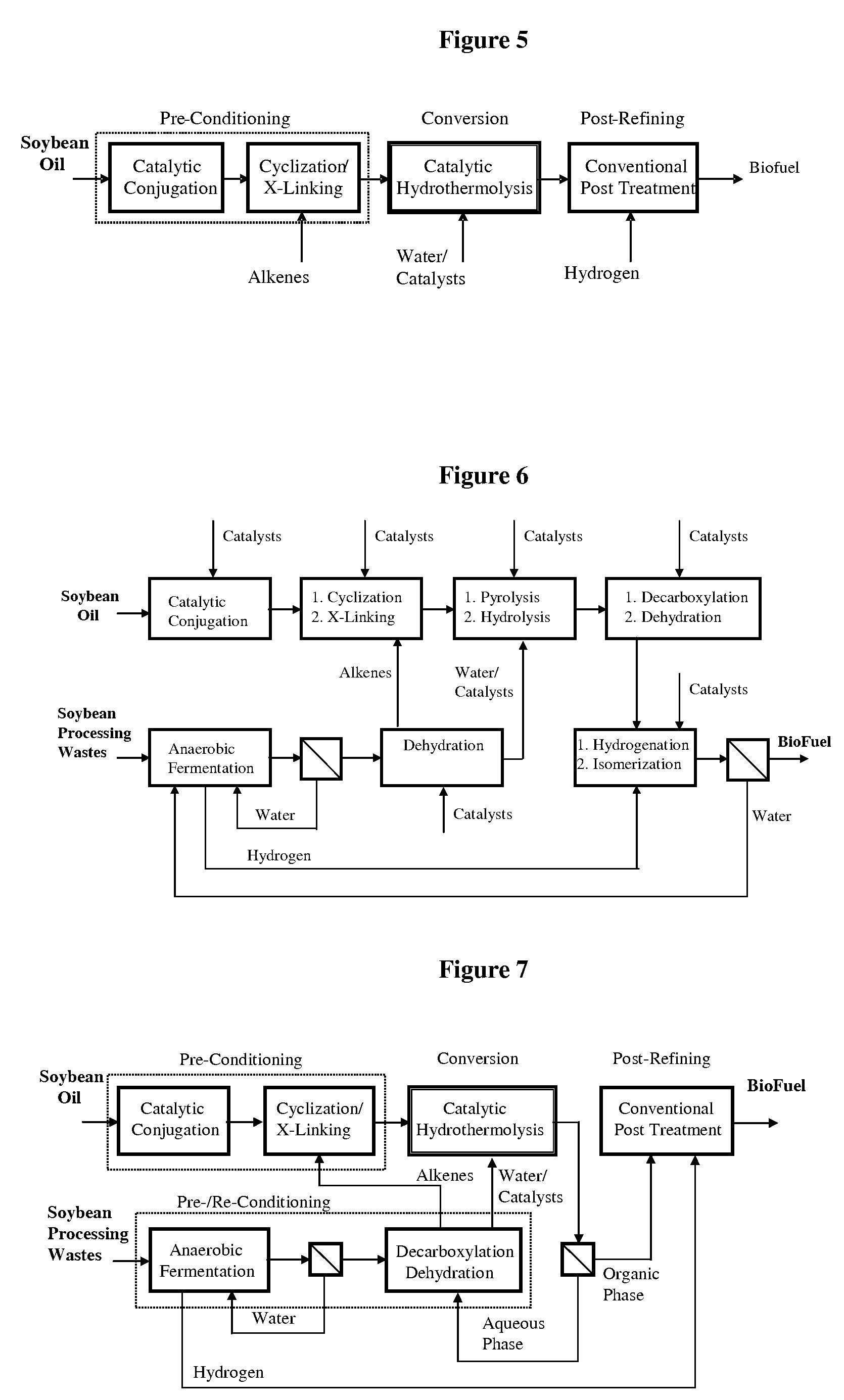Method of converting triglycerides to biofuels
a biofuel and triglyceride technology, applied in the preparation of carboxylic compounds, fatty acid chemical modifications, fuels, etc., can solve the problems of high mass and energy conversion efficiency, loss of valuable oil to gaseous byproducts and less valuable coke,
- Summary
- Abstract
- Description
- Claims
- Application Information
AI Technical Summary
Benefits of technology
Problems solved by technology
Method used
Image
Examples
Embodiment Construction
[0025]The present invention is a process for converting triglycerides to crude biofuel in hot, compressed water by catalytic hydrothermolysis (CH); in some embodiments this process includes a catalyst in the water or in the oil phase. CH reactions may include cracking, hydrolysis, decarboxylation, dehydration, isomerization, cyclization, recombination and / or aromatization.
[0026]Additionally, certain embodiments of the process of the present invention (as shown in FIGS. 4 and 5) include pre-conditioning vegetable oil (naturally including the triglycerides) into an oily polymeric matrix with an optimal degree of cyclization and cross-linking on the fatty acid carbon backbones, before contacting the same with high-temperature water. Specific triglyceride pre-conditioning processes may include catalytic conjugation, cyclization, and cross-linking reactions. There are sufficient prior art literature base and technical knowledge to carry out each of these reactions. However, pre-condition...
PUM
| Property | Measurement | Unit |
|---|---|---|
| temperature | aaaaa | aaaaa |
| pressure | aaaaa | aaaaa |
| temperature | aaaaa | aaaaa |
Abstract
Description
Claims
Application Information
 Login to View More
Login to View More - R&D
- Intellectual Property
- Life Sciences
- Materials
- Tech Scout
- Unparalleled Data Quality
- Higher Quality Content
- 60% Fewer Hallucinations
Browse by: Latest US Patents, China's latest patents, Technical Efficacy Thesaurus, Application Domain, Technology Topic, Popular Technical Reports.
© 2025 PatSnap. All rights reserved.Legal|Privacy policy|Modern Slavery Act Transparency Statement|Sitemap|About US| Contact US: help@patsnap.com



